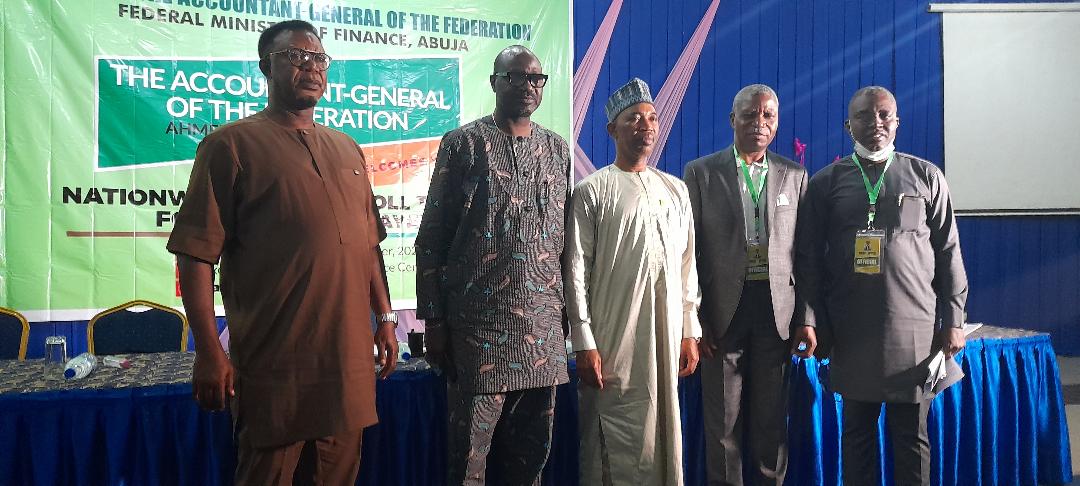The Federal Government has revealed that it will continue to look out for fresh ideas and strategies aimed at sealing all financial leakages in civil service payrolls.
In his address at the training workshop for Integrated Personnel And Payroll Information System (IPPIS) in Lagos on Monday, the Accountant General of the Federation, Mr. Ahmed Idris said “It is apt to reiterate that the government will continually seek fresh ideas, adopt new strategies and implement requisite plans to seal all leakages in order to sustain a flawless payroll and personnel management system and enhance the gains of the various financial management reform initiatives for the benefit of all Nigerians.”
Accordingly, he beseeched the trainees drawn from South West Geopolitical Zone to “give this training the necessary attention and make good use of the information on the operations of the policy. You must see this training as a call to national service. Your ability to honestly and correctly apply the ideas gained at this training becomes your own contribution to nation building.”
Represented by a Director, Mr. Salawu Zubairu, he averred that “At present, Nigeria needs men and women with high level of integrity, dexterity, honesty, diligence and sense of purpose to help reposition the country for the better. As a Role Player, you are an important part of the complex machinery that is meant to ensure the success of the IPPIS policy. Your schedule is a trust and you are expected to be above board. You should be agents of positive change and appreciable progress.”
Earlier in his address, Idris recalled that “The IPPIS is one of the key reform initiatives of the Federal Government. It provides a platform for payment of personnel emoluments and maintains a database for information and actions on government workforce. This position underscores the resolve by the Federal Government to evolve permanent solutions to hitches that may be observed in the operations of the policy. This training workshop, which is in line with this resolve, is meant to keep IPPIS Role Players abreast with the operations of the policy to enhance their capacity to take full ownership of their respective payrolls and efficiently discharge their responsibilities in the centralized platform.
He stressed that “In introducing the IPPIS into the country’s public service, the government sought to entrench transparency and accountability in the management of the payroll system. Prior to the introduction of the IPPIS, the manual payroll system that was in operation made it impossible to determine the number of personnel in Ministries, Departments and Agencies (MDAs) that were paid salaries due to non-availability of necessary data.
“Suffice it to state here that since the inception of the IPPIS, there has been significant level of transparency in administration of government payroll. The policy has aided efficient management of personnel records, timely payment of salaries and wages, accurate deduction of taxes and other third-party dues, as well as smooth remittance of payroll deductions to third parties. Furthermore, the policy has brought greater efficiency to the planning of personnel emoluments and budget.
“Encouraged by the positive impact that the IPPIS brought to administration of the payroll system, the Federal Government mandated that personnel in all government agencies and institutions that draw salaries from the Consolidated Revenue Fund (CRF) be moved to the IPPIS platform. This task, saddled on the Office of the Accountant General of the Federation, has indeed been energy-sapping due to the peculiarities of some government agencies and institutions. However, the Office of the Accountant General of the Federation has recorded tremendous success as many government personnel have been moved to the IPPIS platform. Let me assure you that the Office of the Accountant General of the Federation will not rest on this mandate until all government employees are migrated into the IPPIS platform.
Business Hilights gathered that the special training commenced three weeks ago and has been successfully held in four geopolitical zones, namely; North-West, North-East, South-East and South-South. This week, the training will hold simultaneously in the North-Central and in the South-West.









